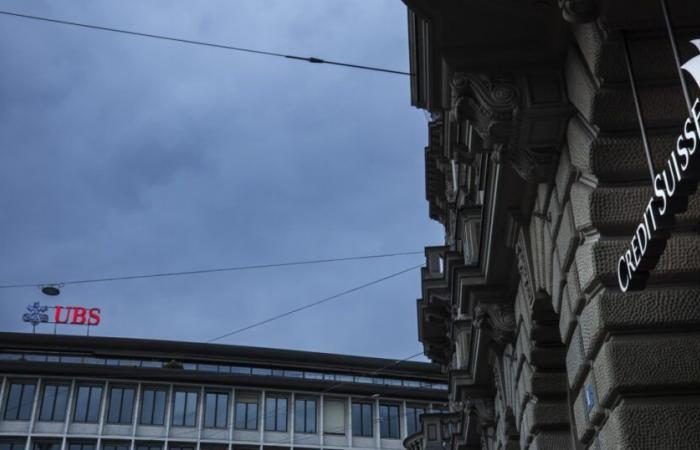A job that took 18 months, resulting in a 565-page document. This is what was presented today by the Parliamentary Commission of Inquiry (CPI) tasked with shedding light on the management carried out by the federal authorities in the context of the emergency merger of Credit Suisse with UBS. From the report of the ICC, established on 8 June 2023 and chaired by the Friborg member of the States Isabelle Chassot (The Centre), it emerges that the collapse of Credit Suisse is attributable to its leaders but also that the authorities – despite having managed to prevent a crisis global financial institution in March 2023 and despite not having committed any wrongdoing – they have accumulated deficiencies on multiple levels. In particular, the actions of the Financial Market Supervisory Authority (Finma) regarding the concessions granted to Credit Suisse on own funds and the partly ineffective supervision are critically assessed, as is the hesitation in the further development of the “too big to fail” (too big to fail, Tbtf) and the sometimes insufficient flow of information between the authorities, pointing the finger in particular at the former “minister” of finance Ueli Maurer. “A situation from which lessons must be drawn”, considers it the Commission, which asks for a series of improvements by formulating 20 recommendations to the government and presenting four motions and a parliamentary initiative. The requests are above all for Tbtf regulation oriented towards international standards, more effective provisions for systemically important banks and clearer rules for collaboration between authorities responsible for financial stability.
A self-inflicted crisis by the bank
The parliamentary commission of inquiry examined a period from 2015 until the completion of the emergency merger with UBS in June 2023. According to the CPI, it was mismanagement by the Board of Directors and management of Credit Suisse and the various scandals – including aiding and abetting tax evasion, money laundering and corruption – which, together with the poor business results and high variable remuneration of top management, have led to a loss of confidence in the markets. Since the summer of 2022, Credit Suisse found itself in an increasingly precarious situation, until it was on the verge of liquidation in mid-March 2023. In short, it was a “self-inflicted” crisis by the bank.
The CPI's analyzes also show that Credit Suisse's top management showed a “fundamental reluctance” towards Finma's activities. Despite numerous interventions by the Supervisory Authority and, in particular, the various enforcement procedures, Credit Suisse has not made “any sustainable progress” regarding compliance with the relevant provisions. Even in late autumn 2022, when the problems could no longer be ignored, the bank's management resisted Finma's instructions “sometimes vehemently”.
Finma's limited effective activity
Regarding the latter, its supervisory activity, however assiduous, was only limitedly effective and one scandal after another hit Credit Suisse. The CPI regrets that Finma did not revoke the guarantee of irreproachability to the bank and does not understand the reasons why, in 2017, it granted it extensive benefits on its own funds in the form of a prudential filter. Despite the legality of this filter, the ICC fundamentally questions its adequacy: without its application, the prudential requirements regarding own funds would not have been met by Credit Suisse in a slight way as early as 2021 and in a clear way from 2022 .
Government and parliament too accommodating
The Commission of Inquiry also criticizes the development of the “too big to fail” legislation: in this regard, the Federal Council and Parliament were too accommodating towards the concerns of banking institutions during the implementation of international standards. The government has repeatedly given these banks longer transition periods for further legislative developments or has been slow to propose the adoption of international standards.
Maurer was slow to inform
When various indicators of Credit Suisse's economic situation worsened significantly, the authorities activated their crisis coordination bodies from August 2022 and switched to crisis mode in October. The ICC believes that the main possible scenarios have been analysed. However, it regrets that, at this stage, not all authorities involved had the same level of information, which may have prevented decisive action being taken earlier.
The first summary information reached the Federal Council in August 2022 and the former head of the Federal Department of Finance (FDF), Ueli Maurer, only informed the government in detail about the bank's critical situation at the beginning of November. This communication “leaves much to be desired”, criticizes the CPI. Furthermore, the passing of the baton at the helm of the department did not go smoothly: there was no real handover. Maurer and Karin Keller-Sutter met on December 19 and the future head of the DFF received only brief oral updates on the Credit Suisse situation.
Global crisis prevented
As of mid-March 2023, the authorities had not yet concluded their investigations into the different scenarios. However, thanks to extensive preliminary work carried out since autumn 2022, they were able to keep Credit Suisse solvent from the outbreak of the acute crisis on Wednesday 15 March until the weekend and thus avoid an international financial crisis. A merger with UBS was the preferred option for all the authorities involved. Considering the uncertain outcome of the laborious negotiations between UBS and Credit Suisse, in the days of March the authorities pursued various options in parallel, more precisely restructuring, temporary nationalization and, as an ultima ratio, a forced merger. It is unclear what solution would have been implemented if the emergency merger had not gone through. The ICC recognizes the work carried out in March 2023 by the authorities, who managed to prevent a global financial crisis, nevertheless considers it essential to draw lessons from what happened, especially since it is already the second time that the State has had to intervene to prevent the liquidation of a systemically important bank. The report will be examined by the federal parliament in the spring session of 2025.
Federal Council criticism of the report
Relying on a press note, the Federal Council says it has taken note of the document and makes it known that it does not agree with some points. Among other things, he considers the criticism that the Tbtf provisions were not sufficiently strengthened to be unfounded and states that he felt sufficiently informed when the emergency merger was negotiated. Finally, he criticizes the collaboration with the ICC and believes that the report presents controversial facts or examples taken out of context that could lead to “erroneous conclusions”.
For its part, Finma welcomes the ICC's recommendation to entrust it with new responsibilities. “We ourselves have been asking for this for some time,” states the Supervisory Authority in a position statement following the publication of the document. At the same time he accepts the criticisms expressed by the commissioners: “We continue to strengthen our supervision and apply the lessons learned from the Credit Suisse case.”
The expert
'Overly bureaucratic and legal surveillance'
«I still have to deal with the document in depth, but from a first summary reading it appears to be a very intelligent and well-made basis for discussion. And what was not obvious given the complexity of the matter.” The premise is Carlo Lombardinilawyer and professor of banking law at the University of Lausanne, who we reached for some considerations on the report of the parliamentary commission of inquiry. The general contents of the 565 pages do not surprise Lombardini, who bitterly considers: «They are confirmation of the total naivety of the Credit Suisse top management who, despite numerous signs that the train was about to derail, were taken by surprise». As for the role of Finma, «I can understand the criticisms made by the ICC, which are largely also acceptable, but the big problem is the fact that banking surveillance activity, not only in our country but everywhere, is the victim of a cultural approach that is too bureaucratic and juridical”, says Lombardini. According to the lawyer «Finma should have intervened more incisively against the bank's managers to whom the shareholders left full freedom to act. For example, he should have removed whoever was driving the train off the tracks straight towards the crash rather than continuing to make requests that were not complied with. It wouldn't have been a first, already in 2008 the Federal Banking Commission (CFB) had asked for the dismissal of the president of UBS Marcel Ospel”. For Lombardini, it is welcome that Finma has more powers as requested by the ICC, “but we must also be careful not to strengthen it too much compared to the role of the Board of Directors of the banks, otherwise the danger is that it will then become responsible for what happens” .
'Naive to think that trouble can be avoided'
According to the ICC, the Federal Council and Parliament were too accommodating towards the concerns of banking institutions during the implementation of international standards in the development of “too big to fail” regulation: is this not an indication that in our system, characterized from a leading financial center, do the banks have full freedom of action? «I don't agree. The problem is that these are very technical issues and it comes back to the question that it is necessary for the supervisor to be at least as good as the person being monitored.” On the other hand, for the professor it is an illusion to think that regulation can be a solution for everything: «We already had the Tbtf rules, and we could have applied them to Credit Suisse, but we came to the conclusion that they would have been harmful. The report says that nationalisation, which for me would have been the right solution, would have calmed the markets and re-established trust, yet they didn't want to adopt it, and in this the Federal Council lacked courage”, judges the professor. “There remained a healthy business made up of Credit Suisse which could and should have been saved, but unfortunately it didn't go that way and wealth was destroyed with a great loss for the Swiss economy.” Drawing up a ranking, according to Lombardini «they are all a little guilty, but at different levels of severity. The first people responsible are the Board of Directors and the general management of Credit Suisse, followed by the shareholders, then Finama and the government for having left “couler la banque”».
What needs to be done to ensure that a similar situation does not happen again, not to mention the only globally systemically important bank now left in Switzerland to which no one else could come to the rescue? For Lombardini, the margins for political action are limited: «We must be aware that banking activity is inherently risky and that it is very difficult to do it well. Whatever the type of measures, problems can always occur and it is naive to believe that they can be avoided “tout court”. We can only hope that they don't sink the country, by paying attention to the signals, and above all by making sure that they have competent and realistic people at the top of the bank.”






